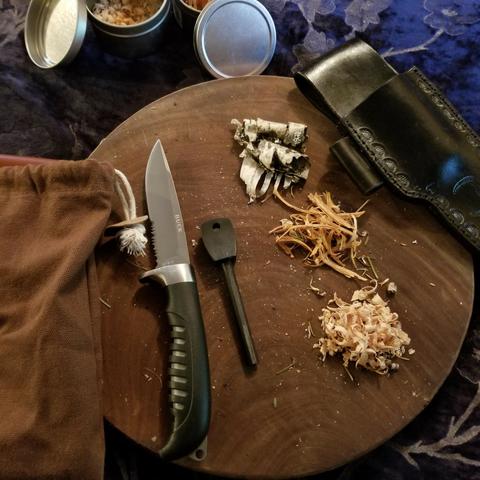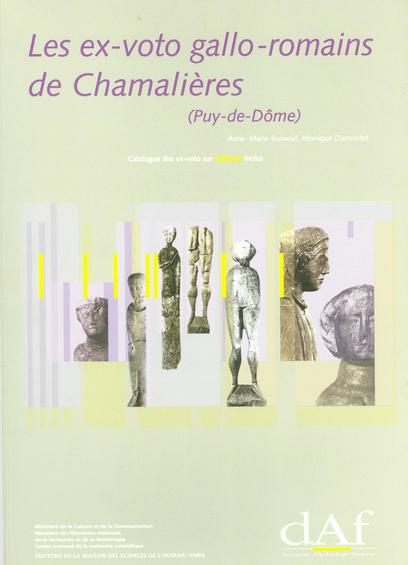“Prone to Wander…”: Forsaking the Way
https://youtu.be/UwRJJTrhNtU
Psalm 91:1-2 They who dwell in the shelter of the Most High, abide under the shadow of the Almighty. They shall say to Abba God, “You are my refuge and my stronghold, my God in whom I put my trust.”
Introduction
One of my most favorite hymns is, “Come Thou Fount” (a hymn that shows up in our current season of music. Of the three verses, the third is my absolute favorite.
O to grace how great a debtor
daily I’m constrained to be!
Let that grace now, like a fetter,
bind my wandering heart to thee.
Prone to wander, Lord, I feel it,
prone to leave the God I love;
here’s my heart; O take and seal it;
seal it for thy courts above.[1]
As I mentioned on the evening of Ash Wednesday, the prophet Joel brings us to the brink and asks us to take a deep, long, hard look in the mirror. The reality is, while we may not think about it often, we are prone to wonder from God. If it helps, please know that I am all too aware of my tendency to want to wander from God, the God whom I love, the God who saved me from myself for others, the God who has given me life, love, and liberation from sin and from human made, harmful mythologies and ideologies. So, if you are having a hard time wrapping your head around this or are feeling that type of shame that leads to condemnation and hiding, don’t worry… you aren’t alone; I’m right there with you.
Sometimes we wander because we forsake the way. There are two types of ways we wander because we forsake. Sometimes, it’s intentional. We’re done. It’s too hard. We just can’t. Sometimes the demand is too great, so we stop participating and we give up. We opt for something easier, something with more give, something with more personal reward seen by others and, more importantly, approved by others. Think about times you’ve tried to “self-differentiate” and the system pulled you back in being stronger and more dominant than your meager efforts—it’s easier to just give up and give in, go back and pick up where you left off, dismissing the work you’ve done thus far. Even uncomfortable and toxic systems can be comfortable even if detrimental. The human mind prefers comfort and ease to the hard work of embarking on something new. I saw a meme once that said the nervous system prefers a familiar hell to an unknown heaven.
Sometimes, though, our forsaking the way is slower and not as intentional. It’s more like forgetting to follow true north and then, OMG, here I am, and I don’t know where this “here” is. neglected to double check, assuming we knew exactly what we were doing and where we were going. And then, nope. This is best expressed when we slide away from our spiritual traditions because of the banality that is caused when tradition becomes traditionalism and boringly oppressive unto death. Blah, blah, blah, I know all of this. So, we stop listening, stop paying attention because we’re convinced we know the what, how, who, when, where, etc. Eventually we are allured away to something sparkly and new, something different and exciting, something that makes us feel special and unique. Yet, by the time that allure and shine has worn off we realize we are nowhere near where we should be; we’ve strayed and in straying we’ve forsaken the way.
We are prone to forsake because we are prone to wander from our God of love.
Deuteronomy 26:1-11
“‘So now I bring the first of the fruit of the ground that you, O Lord, have given me.’ You shall set [the basket of first fruits] down before the Lord your God and bow down before the Lord your God. Then you, together with the Levites and the aliens who reside among you, shall celebrate with all the bounty that the Lord your God has given to you and to your house.”
According to Moses, Israelites are ”to make annual pilgrimage to the central sanctuary, bringing the first fruits of the harvest, to thank God for the land’s bounty.”[2] Upon bringing the basket of first fruits of harvest, the Israelite is to recite a short history summarizing the main events bringing Israel to where they are now; it is a confession of faith and is the verbal adherence to the first command of the Decalogue.[3] According to Moses, the Israelite bringing the basket of first fruit concludes their confession of faith with an acknowledgement that even the items they carry in as an offering are an offering dependent on God; even this bounty is not of my own doing. (As we say at the start of the Eucharist, “For all things come of you, o God…”) Finally, the Israelites are to take everything and throw a massive celebration to honor the coming of the harvest season, to honor God and God’s faithfulness, and, notably, to honor those who have nothing. According to what Moses has offered us here, there is no division between those who brought offerings and those who did not. Here, in this moment, there are no lines drawn in the sand; mercy and solidarity triumph over tribalism and productivism. God’s reign is experienced in the midst of the kingdom of humanity.[4]
So here we are in an interesting spot in the book of Deuteronomy; one that doesn’t really have “Lent” written all over it. So, first, let’s go back just a skosh. Right around chapter 14, Moses (using traditional authorial language) reviews all the laws again. (That’s what the name of the book means: Second Law or Law Again.) Moses details all that is entailed in the Decalogue; this task is finished at the end of chapter 25.[5] Before that? Well, a few (fun!) things, right before the recapping of the Law there is a hefty section on the blessings and curses for adhering to the law and the need for Israel to stay pure and focused on God (chapters 6.5-13). The beginning of chapter 6 is my favorite: the greatest Commandment. Chapter 5 is the quick version of the Decalogue much like the one that appeared in Exodus. Chapter 4 is Moses’s command for obedience to God (one of his final ones considering he’ll die at the end of the book). And chapters 1-3 are a retelling of major events of Israel’s history up until that point.
So, when in chapter 26—the “‘Concluding liturgies’” portion[6]— Moses turns to speak of giving the first fruits to the priest and scripts out a response for each person bringing their basket of fruits to the priest, it’s in response to all that has come before. In other words, it’s a confirmation of the covenant that has just been laid out for the children of Israel.[7] It’s also an offering of praise and thanksgiving for deliverance from enemies and for occupation of the land promised long-ago to Abraham.[8] All this to say, chapter 26 is about Israel NOT forgetting and forsaking the who of “Who let the captives out…”[9] Just as the first commandment of the Decalogue is, “‘I am the Lord your God, who brought you out of the land of Egypt, out of the house of slavery; you shall have no other gods before me,’” (Ex. 20:2-3), this commandment not only aligns the remaining nine to it but is a declaration that Israel must always remember who liberated them from Egypt. In remembering this, everything else falls into place. And, according to our text, this remembrance is to extend to God and the neighbor: [10] the Levites (priests), the orphans, widows and strangers. For Israel and according to Moses, to remember God’s love for Israel is to love others, especially the disenfranchised, unpropertied, the “have-nots.”[11]
Conclusion
None of what is in this passage on Deuteronomy is about Israel forsaking the way and giving up. In fact, it’s all about Israel remembering, remembering intimately, and celebrating and preforming that remembrance. Truly, it’s not about them giving up at all. But here’s the thing, the bulk of Deuteronomy is about asking Israel to exhorting Israel to stay with God, to keep their eyes on God, and walk with God thus walk with their neighbor and correct the wrongs in the world. But why? Why is God, through Moses, telling all this to Israel and, actually, “telling them again”? Because, well, Israel had a history of forgetting and giving up and wandering away. I say this not only because I’ve read the book; I say this because literally a few moments outside of the great liberation from captivity through the wet ground of the parted Red Sea, Israel was ready to drop it all and go back to Egypt so they could have leeks. Whether intentional or unintentionally, Israel will begin to forsake God, to forget, and to wander away from their God whom they love and thus to also forsake and wander away from their neighbor. Israel will get caught up between the allure of the sparkle and shine of the kingdom of humanity (the power and privilege) and forsake God and their neighbor, the stranger, the oppressed, those dependent on help. They will forsake God and God’s way because it grows too difficult and comes with little earthly reward. Moses knows this, God knows this.
So it is with us. And as we go through this first week of lent, let us consider our times of forsaking because we’ve forgotten the good story, became bored of God’s good Word, or because it was too hard, too uncomfortable, too weird, ugly, blech. As wonderful and miraculous as we are, we are fleshy, meat creatures prone to wander. The good news is, God knows this, and God comes to do something about it.
[1] https://hymnary.org/text/come_thou_fount_of_every_blessing
[2] Levinson, “Deuteronomy,” 423.
[3] Levinson, “Deuteronomy,” 424. vv. 8-9 “The thanksgiving prayer recited by the pilgrim provides a precis of the main narrative line of the Pentateuch and Joshua (the ‘Hexateuch’). For that reason, the verses have been seen by some scholars as an ancient confession of faith, or creed, that is olde than its present context. Strikingly, this summary of the main events of Israel’s religious history makes no mention of the revelation of law at Sinai/Horeb. The same is true for many similar confessions in the Bible…”
[4] Levinson, “Deuteronomy,” 424. v. 11 “Enjoy” “or rejoice” “specifically in a festive meal consumed at the central sanctuary…which must include the Levite and the stranger for whose benefit (along with other disadvantaged groups) the following law is directed.” The law in v. 12
[5] LW 9:254
[6] Bernard M. Levinson, “Deuteronomy,” The Jewish Study Bible Jewish Publication Society Tanakh Translation, eds. Adele Berlin and Marc Zvi Brettler (Oxford: OUP, 2004), 423.
[7] LW 9:254 This portion “confirms the covenant between God and the Children of Israel.”
[8] LW 9:254
[9] Levinson, “Deuteronomy,” 423-424. V. 5 “This verse is deployed in the Passover Haggadah (just following the section on the Fours Sons) in a famous passage that emphasizes God’s miraculous sparing of Israel from a long line of persecutors, beginning with Laban’s attack on Jacob (Gen. 31).”
[10] LW 9:254 “So he also treats the tithes to be paid every three years, teaching that they are to be given to the Levites, the orphans, the widows, and the strangers, with the affirmation that they are a fulfillment of the work of love.”
[11] LW 9:255 “… it denotes the confession of faith and the thanksgiving of the righteousness the sprit, where we acknowledge at the same time that the Lord has freed us from great evils to which we have been subjected, and that we have accepted many good things by faith. But bringing of tithes denotes that we are wholly given to the service of the neighbor through love…”
#ProneToWander_ #ComeThouFount #Deuteronomy #Deuteronomy26 #Deuteronomy6 #FirstFruits #ForsakingTheWay #GodComes #GodSLove #Lent #Lent1 #LutherSWorks #MartinLuther #Offerings #Praise #Thanksgiving









